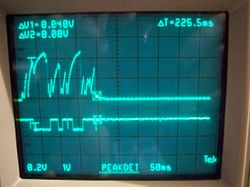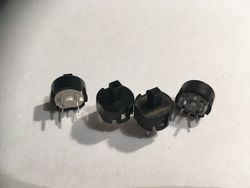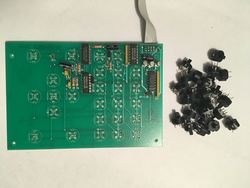Restoring 1220, 1225 and 1230 keypad
Jump to navigation
Jump to search
See also → Rebuilding 1230 keypad using 3D printer
Description


- The 1220, 1225 and 1230 have a keypad interface for controlling them. The switches are tactile switches with a small spring. Over time they start to become extremely "bouncy". This is due to a number of factors, some including corrosion and weakening springs. Over time this will lead to problems such as the keypad being less responsive and the analyzer registering multiple presses.
Picture 1 shows what the keypad is registering.
Fix


- WARNING! When taking the analyzer apart, users are at their own risk! The inside contains lethal voltages and precaution must be taken.
- The switches that the keypad uses are still being manufactured today. They are C&K D6L90F1LFS and the D6L90F2LFS, they are the exact same. The difference being the force required to push the buttons. One takes 1.3 Newtons and the other 2 Newtons (Pic3). The keypad has 26 of them. Replacing them with new ones will fix the excessive bouncing. When de-soldering the switches one has to be careful of burning the PCB and lifting pads because the traces are very small.
Conclusion

- It is not known how long this fix will last, but it makes the unit usable again. After the replacement the signal is now clean (Pic5).